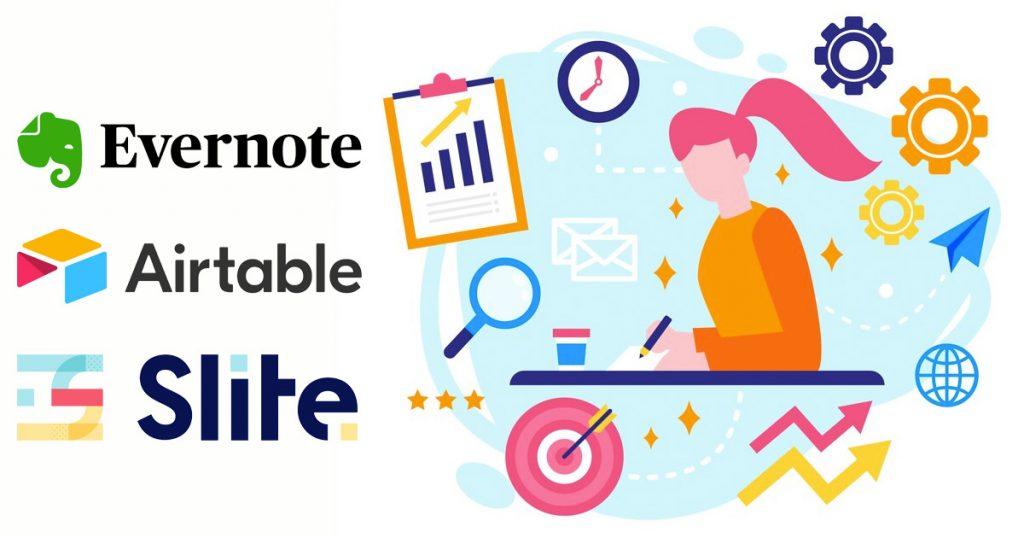In the modern business landscape, staying productive often hinges on using the right tools. Notion has carved a name for itself as a flexible and powerful productivity platform. However, it’s not the only solution available. Exploring other platforms can open doors to tools that offer unique features, better customization, or more affordable options tailored to your specific needs. Let’s dive into the world of alternatives that could reshape how you and your team work.
What is Notion?
Notion combines note-taking, task management, database creation, and collaboration into a single, highly customizable workspace. Its intuitive drag-and-drop functionality lets users build their workflows, whether for personal projects or large-scale team collaboration.
It’s widely used across industries like tech, education, and creative fields for organizing information and managing tasks efficiently. However, users often cite challenges such as a steep learning curve, limited offline functionality, and restricted third-party integrations, making it worthwhile to explore other options for specific needs.
Benefits of Using Productivity Tools
Productivity tools have become indispensable for businesses and individuals aiming to streamline their workflows and enhance team collaboration. These tools simplify task management, improve communication, and help users stay organized.
Centralized Workspaces
A centralized tool reduces the chaos of juggling multiple apps. Everything—notes, tasks, files, and deadlines—stays in one place, making it easier to focus and stay on top of priorities.
Enhanced Collaboration
Real-time collaboration ensures everyone on the team is aligned. Tools offering simultaneous editing, comment tracking, and notifications make teamwork seamless, even when members are working remotely.
Improved Task Management
With features like task assignment, deadline tracking, and automated reminders, productivity tools help keep tasks organized and ensure accountability across teams.
Integrations with Other Tools
Many platforms connect seamlessly with apps you already use, like Slack, Google Workspace, or Outlook. These integrations eliminate redundant work and streamline data sharing across platforms.
Scalability for Businesses
As your needs grow, productivity tools can adapt. Many offer advanced analytics, automation, and premium features to support large teams or complex projects, making them a sound investment for scaling businesses.
Notion Alternatives to Try in 2025
If Notion doesn’t quite meet your requirements, here are some powerful alternatives worth considering. Each of these tools brings its unique strengths to the table.
Evernote
A pioneer in digital note-taking, Evernote offers powerful tools to capture, organize, and access your thoughts. It’s particularly valued for its ability to handle multimedia notes and its robust search functionality. Recent updates include AI-powered summaries and task management, making it a versatile choice for professionals.
Airtable
Airtable bridges the gap between spreadsheets and databases. Its visually appealing interface allows users to create workflows, manage inventory, or even design content calendars. The platform’s customization options and pre-built templates make it an ideal choice for both novices and experienced users.
Slite
Slite is designed for teams that prioritize collaboration and knowledge sharing. With a user-friendly interface, it allows teams to create, edit, and store documents effortlessly. Its focus on providing a centralized knowledge base makes it invaluable for onboarding new members or maintaining a record of shared insights.
Microsoft Loop
Part of Microsoft 365, Loop takes collaboration to another level by allowing users to create dynamic content blocks that can be shared and edited across apps. This modular approach is perfect for teams needing flexibility and integration within the Microsoft ecosystem.
Almanac
Ideal for remote-first teams, Almanac focuses on document creation, task management, and streamlined collaboration. Features like version history and peer reviews make it perfect for teams working on complex documents or requiring structured workflows.
Obsidian
Obsidian is a markdown-based tool designed for individuals who need a powerful knowledge management system. With features like graph view and backlinking, it’s perfect for organizing complex ideas and finding connections between them.
Mem
Mem uses AI to organize and retrieve notes intuitively. Its smart tagging system learns from your habits, suggesting connections and relevant content. This tool is particularly helpful for professionals juggling multiple projects.
Anytype
If privacy and offline access are priorities, Anytype is worth exploring. It combines note-taking, collaboration, and task management in a way that emphasizes data security. Its open-source nature ensures transparency and control over your data.
Scrintal
Scrintal takes a visual approach to productivity with a unique combination of mind-mapping and note-taking. Its drag-and-drop interface is perfect for brainstorming and project planning, making it an excellent choice for visual thinkers.
Smarter Tools for Smarter Work
Choosing the right productivity platform can make a world of difference in how you work. Exploring these alternatives to Notion can help you find tools that align with your goals, team dynamics, and workflows.
Whether you prioritize collaboration, privacy, or advanced features, these platforms can empower you to work smarter, stay organized, and achieve more. Take the time to identify your needs, test these tools, and unlock the productivity potential that suits your unique style.
